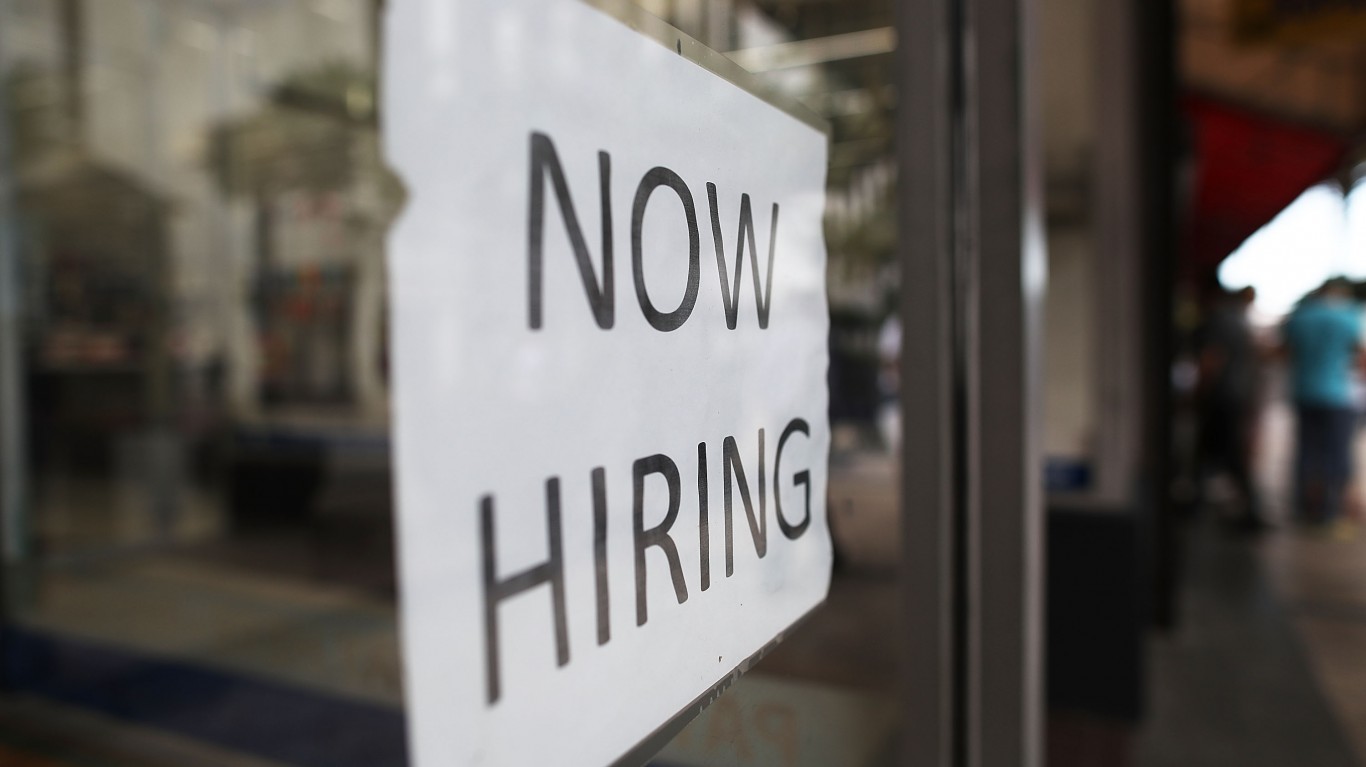
The consensus among economists is that the United States added 460,000 jobs this month and unemployment dropped to 3.7%. That would put it back to about what it was in the months just prior to the pandemic. It would be a breathtaking change from the surge of joblessness in March and April of 2020. The Bureau of Labor Statistics will release the figures on Friday.
The flaw in the forecast is that rising interest rates and increases in consumer and producer prices had no effect on hiring. Granted, the labor market is extremely tight. On paper, open jobs, which are at record levels, should keep the number of people hired each month moving higher.
[in-text-ad]
However, recent surveys of financial executives at smaller companies and chief executives of large ones show a sudden burst of caution. The most recent of these was the Business Round Table CEO Economic Outlook. The roundtable includes CEOs of America’s largest companies, which, in total, have 20 million employees and $9 trillion in annual sales. It Q1 Economic Outlook Index shows:
- Plans for hiring decreased nine points to a value of 112.
- Plans for capital investment decreased nine points to 106.
- Expectations for sales decreased 10 points to 125.
Although these numbers remain high by historical standards, the declines should cause concern about job creation. In downturns, job openings quickly disappear, and this is not because they have been filled.
Another yardstick of how likely it is that the economy will add jobs is consumer sentiment. Pessimistic consumers are not abundant spenders. The new University of Michigan survey of consumers showed that in February the “Current Economic Conditions” had an index of 62.8. That was down from 67.2 in January and 86.2 in February a year ago. Last February, the figure was rising. By March of last year, it had jumped to 93.0. Inflation, particularly the cost of energy, could push these numbers down for the next several months.
Consensus forecasts about monthly unemployment have been well off the mark over the past year. Expect that to be true again for March. The economy is sliding, and fast.
Click here to see what Americans are spending their money on.
Take Charge of Your Retirement In Just A Few Minutes (Sponsor)
Retirement planning doesn’t have to feel overwhelming. The key is finding expert guidance—and SmartAsset’s simple quiz makes it easier than ever for you to connect with a vetted financial advisor.
Here’s how it works:
- Answer a Few Simple Questions. Tell us a bit about your goals and preferences—it only takes a few minutes!
- Get Matched with Vetted Advisors Our smart tool matches you with up to three pre-screened, vetted advisors who serve your area and are held to a fiduciary standard to act in your best interests. Click here to begin
- Choose Your Fit Review their profiles, schedule an introductory call (or meet in person), and select the advisor who feel is right for you.
Why wait? Start building the retirement you’ve always dreamed of. Click here to get started today!
Thank you for reading! Have some feedback for us?
Contact the 24/7 Wall St. editorial team.


